Human Resource Management is an ever-evolving field, and with the growing influence of artificial intelligence (AI) in organizational practices, professionals must adapt to stay ahead in a rapidly changing environment.
To explore this topic, Mediamax spoke with Dr Giovanni Oscar Serafini, Associate Professor in Human Resource Management and Organisational Behaviour at CITY College, University of York Europe Campus.
The Pan-European Executive MBA program, jointly offered by the University of York’s European campus CITY College and the Faculty of Economics and Management at the University of Strasbourg, provides Armenian applicants with the opportunity to receive high-quality British and European education and two MBA diplomas from York and Strasbourg Universities, while continuing to live, work, and study in Armenia.
We also discussed with Dr Serafini how the Executive MBA program equips professionals with key skills to navigate AI’s rapid integration in HR.
- In recent years, almost all sectors have undergone significant changes due to the integration of artificial intelligence. Professor Serafini, could you please elaborate on the main changes observed in the field of human resources and talent management?
-The integration of artificial intelligence into human resources and talent management has led to a number of significant changes.
To begin with, AI applications have transformed, and arguably even revolutionised, talent sourcing and screening. With automated systems now handling resume evaluations and initial assessments, the hiring process has become faster and more efficient, significantly reducing time-to-hire while improving candidate-job fit.
From an HR perspective, AI helps automate a wide range of routine tasks, allowing HR professionals to dedicate more time to strategic, human-centered initiatives.
AI has also become a powerful tool for employee development. By analyzing data related to both individual performance and career aspirations, it enables personalized learning pathways. This makes skilling and upskilling efforts far more effective.
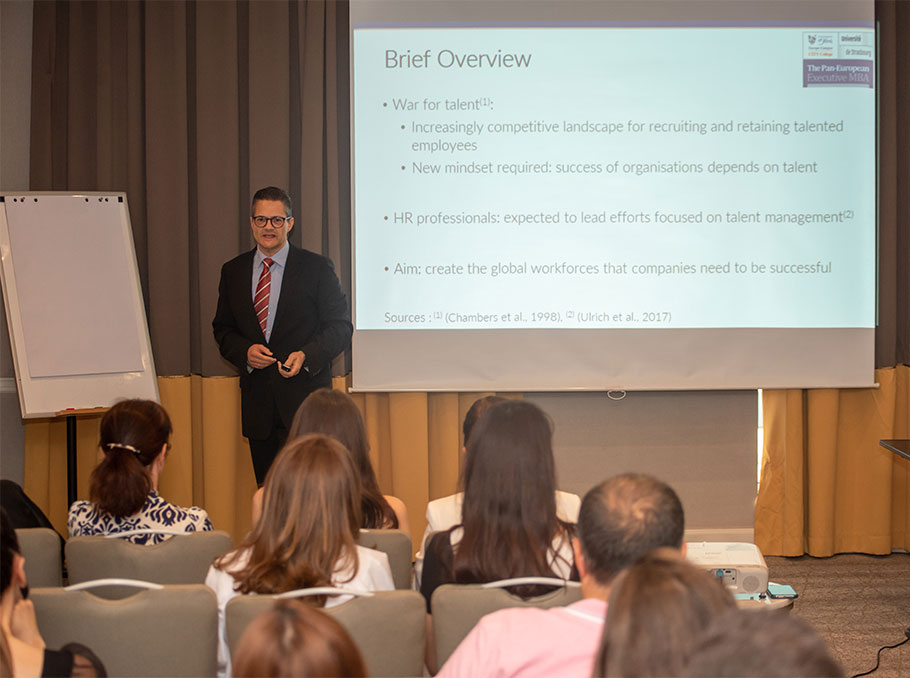
Photo: Mediamax
When embraced by employees, AI-driven platforms can enhance workplace engagement by providing real-time feedback and personalized support. As a result, we are seeing greater responsiveness and an overall improvement in the work environment.
AI also supports what is known as predictive workforce analytics. By analyzing financial, strategic, and other business data, it helps identify workforce trends, anticipate turnovers, and determine future skill needs. This makes workforce planning not only more strategic, but also more proactive, allowing organizations to forecast and prevent potential issues before they arise.
- About a year and a half ago, during your lecture at City College’s open days in Yerevan, you shared some interesting cases of how HR teams in certain organizations were applying AI. What successful examples would you highlight now?
- In several companies within the IT sector, the use of AI-powered platforms has significantly reduced the time HR teams spend on onboarding new employees, cutting it from 20 hours to just 12 per hire.
Additionally, the time to hire has been shortened as well, thanks to AI automating early-stage interactions and interview scheduling. For example, a major restaurant chain succeeded in reducing the average time between application and employment commencement from twelve days to merely four.
In terms of payroll administration, AI automation has enabled early error detection, thereby improving accuracy, ensuring compliance, and streamlining operations. Tasks that once demanded extensive manual effort are now completed in a fraction of the time, contributing to broader performance improvements.
- Such examples of AI integration are great, but let’s not forget that HR professionals need the right skills to successfully apply AI. What are those essential skills, and how do you prepare your students to use AI smartly in their future work?
- HR professionals need to understand not only how to integrate AI, but how to do so ethically.
When working with our students, we explore both the applications and the implications of AI, placing special emphasis on ethical concerns. We examine both successful and problematic cases to help develop critical thinking.
Most importantly, we emphasize that AI is just a tool, one that should assist, but never replace, human judgment.

In this context, continuous learning becomes essential. With AI advancing rapidly, regularly updating one’s knowledge and nurturing critical thinking is a must , not only for HR professionals, but across the board.
- You emphasized the ethical issues, and it reminded me of the concerns you raised during your previous lecture — that many organizations misuse data collection and processing, even going so far as to track an employee’s mood through facial expression data, which can later affect their chances of promotion. What are the main ethical concerns today, and are governments and international organizations taking action to address them?
- While artificial intelligence offers tremendous value, we must also remain aware of its risks.
Bias continues to be one of the most pressing concerns. AI systems reflect the data they are trained on, which means organizations must ensure diversity in their training datasets, regularly review AI-driven decisions, and actively monitor for emerging biases.
Cybersecurity is another major area of concern. AI systems can be vulnerable to cyberattacks and malicious use. That is why many organizations are developing their own proprietary platforms and warning employees not to upload sensitive data. Continuous cybersecurity training for staff is vital.
Regarding the example you mentioned, yes, the privacy of biometric data, facial expressions, and other deeply personal information is critical. There must be complete transparency around what data is collected, where it is stored, how it is processed, and what safeguards are in place. Employees should also have the option to opt out of the collection of certain data if they wish.
AI should not function as a “black box.” If organizations are unable to explain how their AI systems reach certain decisions, especially those affecting employees, they risk facing legal consequences.

Photo: Mediamax
As for regulation, yes, governments have begun to act. The European Union passed the Artificial Intelligence Act in August 2024, which represents a major step forward. However, enforcement remains a challenge, and there is a delicate balance between regulation and stifling innovation through bureaucracy. AI is evolving at an extraordinary pace, and although governments are trying to catch up, the gap still exists.
- On one hand, we see the widespread integration of technology in the workplace; on the other hand, we observe that different generations respond to it in different ways. How can HR professionals effectively manage teams made up of members from different generations?
In my role as Module Leader of two MBA modules, Understanding Organisational Behaviour and HR Policies & Practices and Performance Management, I teach students who frequently remark that generational differences are often exaggerated. What truly matters in the workplace is mutual trust, regardless of age.In many cases, people’s behavior is shaped more by their career stage or the times they live in than by the year they were born. Still, HR professionals must remain adaptable.
For instance, communication preferences differ: older employees may prefer face-to-face interactions, while younger ones often lean toward digital communication. Organizations should therefore adopt multiple channels to ensure everyone feels included.
Flexibility is equally important when it comes to in-office versus remote work. Today, hybrid models benefit everyone, not just younger generations. In many major cities, long commutes are a serious issue, making the option to work from home a major advantage. But with this flexibility comes the need for strong digital infrastructure and robust cybersecurity measures.
In short, managing multigenerational teams is about providing practical support, fostering mutual respect, and encouraging continuous learning, with AI functioning as a complementary resource throughout.
- To wrap up our interview, could you share how the Pan-European Executive MBA program prepares students to navigate these challenges and become competitive professionals in a rapidly changing world?
- In our classes, we use real-world case studies and simulations to help students understand the practical applications of AI and its impact. We also invite guest lecturers and organize workshops that focus on AI.
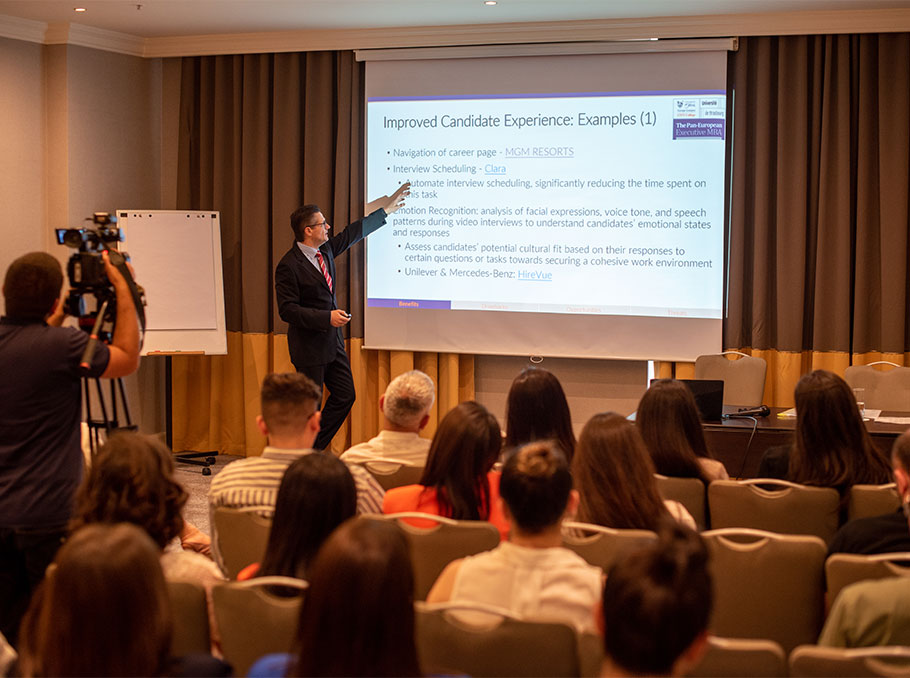
Photo: Mediamax
What is crucial, however, is that we consistently emphasise the human dimension: emotional intelligence, interpersonal engagement, and the recognition that AI is a tool to assist, not a substitute for human contribution. Our students are already managers, so it is essential they understand how AI influences leadership, decision-making, and organizational change.
We also aim to cultivate strategic thinking, adaptability, and global awareness. One of the key strengths of our MBA program is career and leadership coaching. Each participant receives personalized guidance to support their career path and leadership development, which is especially important in today’s rapidly changing business environment.We want our students to build a solid foundation in leadership and strategy while embracing flexibility, focus, and resilience, qualities that are indispensable for success in a dynamic, global business world.
Our students also take part in international study trips, which give them direct exposure to diverse business ecosystems and foster enriching discussions.
AI can certainly be helpful, but it’s important to always cross-check what it provides. Never rely on it blindly.
Gaiane Yenokian talked to Dr Giovanni Oscar Serafini


















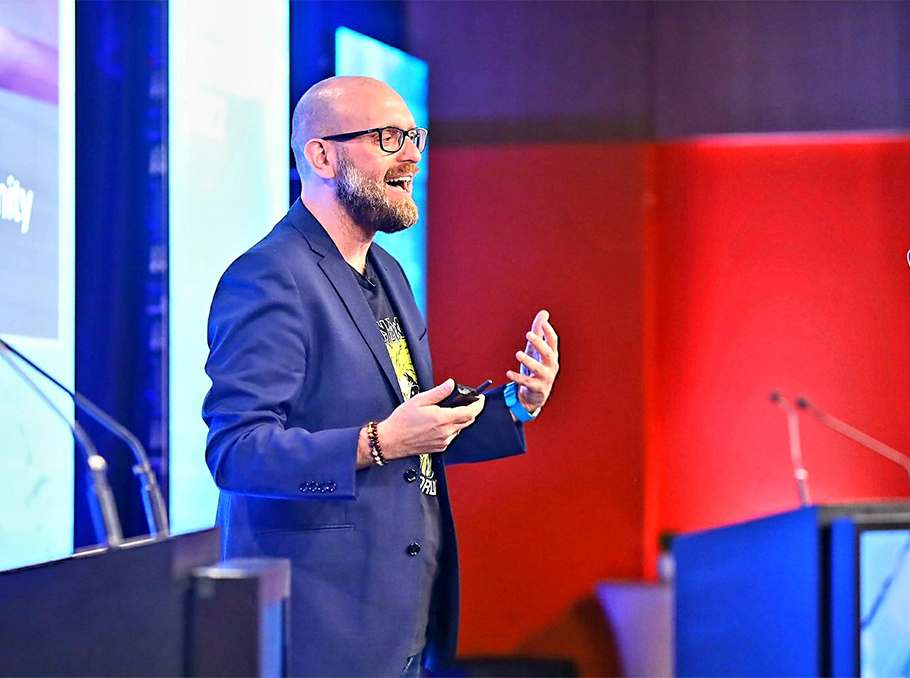
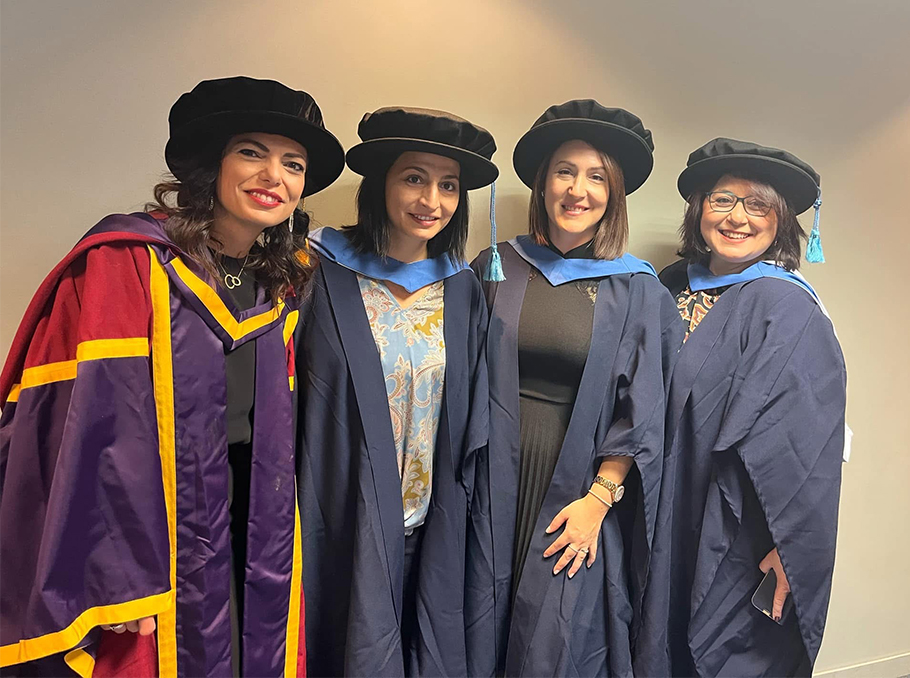
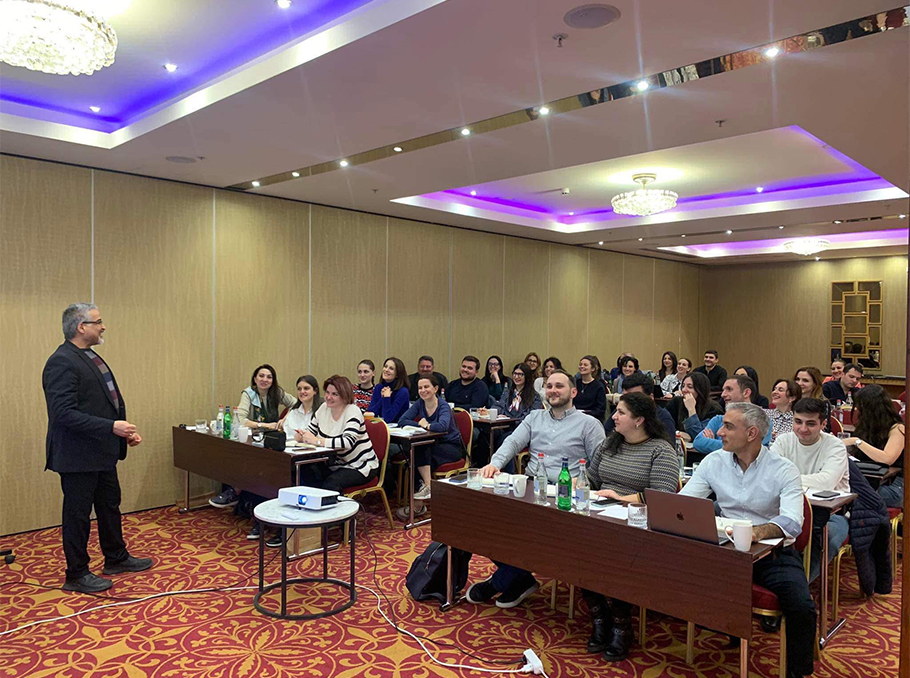








Comments
Dear visitors, You can place your opinion on the material using your Facebook account. Please, be polite and follow our simple rules: you are not allowed to make off - topic comments, place advertisements, use abusive and filthy language. The editorial staff reserves the right to moderate and delete comments in case of breach of the rules.